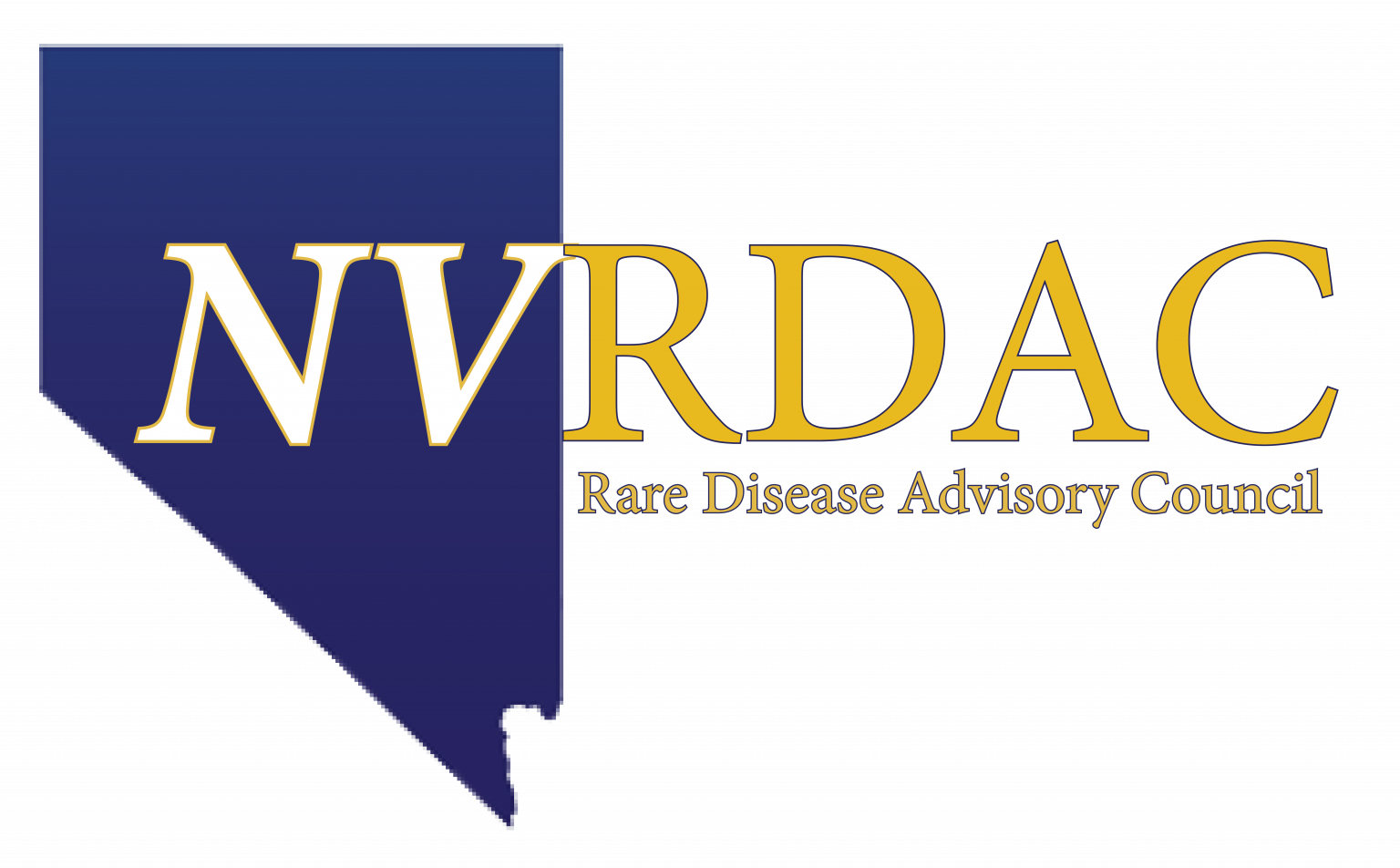Key Takeaways:
- Nevada’s Rare Disease Advisory Council (NV-RDAC) has launched comprehensive Patient & Family and Healthcare Provider Needs Assessments to gather critical insights about rare disease care in Nevada
- An estimated 25–30 million Americans live with rare diseases, yet many families spend years searching for diagnosis and appropriate care without feeling heard by the healthcare system
- The findings from both assessments will directly shape Nevada’s next Rare Disease State Plan, guiding policies and programs that reflect real patient and provider experiences
- Nevada is one of 33 states with a Rare Disease Advisory Council, part of a national movement to give rare disease communities a stronger voice in state government
- Every response to these assessments helps identify gaps in care coordination, access, and support systems for Nevada’s rare disease community

What Is the Nevada Rare Disease Advisory Council Doing to Support Nevada Families?
The Nevada Rare Disease Advisory Council (NV-RDAC) was formed under SB315 during the 2019 legislative session of the Nevada legislature. As an advising body, NV-RDAC provides a platform for those living in Nevada who are affected by a rare disease, giving this community a stronger voice in healthcare and state government.
Nevada is one of 33 states across the United States that has established a Rare Disease Advisory Council. The first RDAC was created in North Carolina in 2015 by advocates and families driven to make a difference. This national movement recognizes that state governments are uniquely positioned to address rare disease needs in ways that align with their population’s demographics and healthcare landscape.
NV-RDAC’s duties include:
- Performing statistical and qualitative examination of rare diseases in Nevada
- Increasing awareness of the burden caused by rare diseases
- Identifying evidence-based strategies to prevent and control rare diseases
- Evaluating systems for delivery of treatment
The council also works to increase awareness among healthcare providers of the symptoms of and care for patients with rare diseases, develops a registry of rare diseases diagnosed in Nevada, and compiles an annual report with recommendations for legislation and policy.
Through proactive engagement, the council has fostered discussions with key stakeholders, including organizations such as the National Organization for Rare Disorders (NORD), Medical Home Portal, Cure 4 The Kids Foundation, and Global Genes. A key outcome of these efforts has been the council’s close collaboration with the Nevada Department of Health and Human Services (DHHS) to streamline data collection processes.
How Common Are Rare Diseases in Nevada?
While individual rare diseases affect fewer than 200,000 people in the United States, there are over 10,000 known rare diseases. Collectively, they impact an estimated 25–30 million Americans, with approximately 50% of those affected being children. These conditions lead to significant challenges in diagnosis, treatment, and quality of life for affected individuals and their families.
In Nevada, specific statistics for the prevalence of rare diseases have not been readily available. Data collection and reporting on rare diseases can be challenging due to their rarity and the fragmented nature of healthcare systems. This gap in understanding makes it difficult for state policymakers and government officials to have an in-depth understanding of the needs of Nevada’s rare disease community.
That lack of awareness contributes to common and harmful obstacles that rare disease patients face, including delays in diagnosis, misdiagnosis, lack of treatment options, high out-of-pocket costs, and limited access to medical specialists. Many rare diseases go undiagnosed or misdiagnosed for years due to lack of awareness among healthcare providers and the rarity of these conditions.
But behind every rare disease statistic is a story—a parent searching for answers, a provider trying to help, and a system learning how to listen.

What Does It Mean When Healthcare Systems Stop Listening?
Innovation moves quickly in healthcare. New treatments emerge, advanced diagnostics become available, and digital platforms transform how we access care. But amid all that progress, one truth remains: none of it matters if people don’t feel heard.
Listening forms the foundation of trust, safety, and healing. Yet silence continues to be one of the most persistent barriers in our healthcare system. This silence happens when a patient doesn’t feel safe to speak up, when a parent is dismissed for asking questions, or when a provider notices something concerning but stays quiet because their feedback has been overlooked before.
In the world of rare disease, that silence is magnified. Families can spend years searching for answers, only to feel unheard when they finally find care. Healthcare providers, meanwhile, often work within systems that aren’t equipped to support the complexity or isolation that rare conditions bring. When patients and providers go unheard, care fragments and trust erodes.

How Has NV-RDAC Made Listening the Starting Point for Change?
18 months ago, NV-RDAC launched Nevada’s first-ever Patient & Family Needs Assessment, and the response has been powerful. The data gathered so far has already begun shaping how the council understands access, care coordination, and quality-of-life challenges for those living with rare diseases in Nevada. But more voices are needed to complete the picture. Every new response adds critical insight that helps drive meaningful change.
Now, NV-RDAC is expanding that work with the launch of its Healthcare Provider Needs Assessment, designed to capture the perspectives of those on the frontlines of rare disease care. Together, these two assessments bring every voice to the table.
The NV-RDAC surveys ask simple but powerful questions, like:
- What are families struggling with?
- Where do providers feel unsupported?
- How can Nevada build a system where listening is as essential as lab results and diagnosis codes?
The findings from both assessments will directly shape Nevada’s next Rare Disease State Plan, guiding policies, programs, and priorities that reflect what people actually experience, not just what data alone can tell us.
How Can You Add Your Voice to Shape Nevada Rare Disease Support?
We know that change doesn’t start with policies. It starts with people speaking and others choosing to listen.
If you are a patient, family member, or caregiver living with a rare condition in Nevada, your story matters. The Patient & Family Needs Assessment gives you the opportunity to share your experiences navigating diagnosis, treatment, and ongoing care.
If you are a healthcare provider treating patients with rare or complex conditions, your perspective is equally vital. The Healthcare Provider Needs Assessment allows you to share insights about the challenges you face in providing care, gaps in resources or training, and what support would help you better serve your patients.
Your input helps the council identify where silence still exists and how to replace it with collaboration, compassion, and action.
How Has Patient Input Driven Nevada Rare Disease Legislation?
We know that change doesn’t start with policies. It starts with people speaking and others choosing to listen.
If you are a patient, family member, or caregiver living with a rare condition in Nevada, your story matters. The Patient & Family Needs Assessment gives you the opportunity to share your experiences navigating diagnosis, treatment, and ongoing care.
“Change doesn't start with policies. It starts with people speaking and others choosing to listen.”
Annette Logan-Parker, Board Chair at NV-RDAC and Founder of Cure 4 The Kids Foundation
The data gathered through NV-RDAC’s Patient & Family Needs Assessment has already impacted legislative action. As the founder of Cure 4 The Kids Foundation and Board Chair of NV-RDAC, I used insights from the survey to reinforce advocacy efforts during Nevada’s 2025 legislative session. The patient experiences documented through the assessment helped lawmakers understand the real-world impact of policy gaps in rare disease care.
That advocacy resulted in two landmark bills: Senate Bill 189, which established licensing for genetic counselors and recognized genetic counseling as a reimbursable medical service, and Senate Bill 348, which modernized Nevada’s newborn screening program to ensure every baby receives comprehensive testing for life-threatening conditions.
These legislative victories demonstrate how patient voices directly shape Nevada policy. When families share their experiences through the needs assessments, those stories become the foundation for systemic change. Learn more about Nevada’s 2025 rare disease legislative wins.

What NV-RDAC Has Accomplished Through Listening
Despite resource constraints, NV-RDAC has made significant progress in several key areas by prioritizing stakeholder engagement and collaborative problem-solving:
Building Nevada’s Rare Disease Data Infrastructure: NV-RDAC has initiated foundational efforts to establish a statewide rare disease registry, with particular focus on childhood cancer, sickle cell disease, and newborn screening conditions. These efforts, in collaboration with Cure 4 The Kids Foundation and DHHS, will provide Nevada with crucial data to assess the incidence, causes, and economic impact of rare diseases.
Creating Meaningful Stakeholder Engagement: The council has made stakeholder engagement a cornerstone of its efforts to address the needs of Nevada’s rare disease community. NV-RDAC has actively engaged with a broad spectrum of stakeholders, including rare disease patients, healthcare providers, advocacy groups, lawmakers, and nonprofit organizations. Through these engagements, the council has gained critical insights into the challenges faced by those living with rare diseases.
Raising Public Awareness: NV-RDAC’s successful “While You Wait” campaign and its presence on social media have significantly raised public awareness about rare diseases, supplemented by live television appearances and print media coverage of council activities.
Advocating for Policy Changes: Although NV-RDAC does not have the authority to submit bill draft requests directly, the council has successfully collaborated with legislators—from state senators to the governor—to introduce and sign into law important bills. As mentioned above, NV-RDAC informed advocacy efforts have directly resulted in the expansion of the newborn screening program, increased medical reimbursements for pediatric cancer patients on Medicaid, access to pediatric specialized care, and more.
Strengthening Healthcare Partnerships: Through partnerships with DHHS and Cure 4 The Kids Foundation, the council has improved data collection processes, particularly for childhood cancer and sickle cell cases. The upcoming development of a comprehensive childhood cancer and rare disease registry will further streamline these efforts, ensuring Nevada’s rare disease data is both accurate and efficiently managed.
When people feel safe to speak, systems become safe to trust.
Every Voice Matters in Rare Disease Advocacy
Every patient deserves to be heard. Every provider deserves to be supported. And every policymaker deserves to understand the truth directly from the people who live it.
Nevada’s rare disease community is leading that transformation, one story, one survey, one shared truth at a time. The dual needs assessments represent more than data collection. They represent a commitment to ensuring that Nevada’s rare disease policies and programs are built on the real experiences of patients, families, and the healthcare providers who care for them.
With millions of people affected by rare diseases in Nevada, the collective impact on public health, healthcare systems, and affected individuals and families is substantial. Efforts to raise awareness, improve diagnosis and treatment, and support research into rare diseases are essential for addressing the needs of those affected by these conditions.
In Nevada, the path forward begins with listening. Your participation in these assessments helps create a healthcare system where no one’s voice goes unheard, where providers have the resources and support they need, and where families can find the care and answers they deserve without years of searching in silence.
Silence costs too much, and in healthcare, listening saves lives.

Take Action Today
Patients, Families, and Caregivers: Share your experience with rare disease care in Nevada:
TAKE THE PATIENT & FAMILY NEEDS ASSESSMENT
Healthcare Providers: Help us understand how to better support you in caring for rare disease patients:
TAKE THE HEALTHCARE PROVIDER NEEDS ASSESSMENT
Your voice shapes Nevada’s future rare disease policy and support systems. The more voices we hear, the better we can serve our community.

About the Author: Annette Logan-Parker brings over 30 years of experience in pediatric oncology to her role as Founder and Chief Advocacy & Innovation Officer at Cure 4 The Kids Foundation. She has dedicated her career to improving outcomes for children with cancer and ensuring equitable access to cutting-edge treatments for all families.

